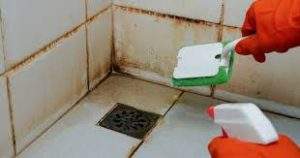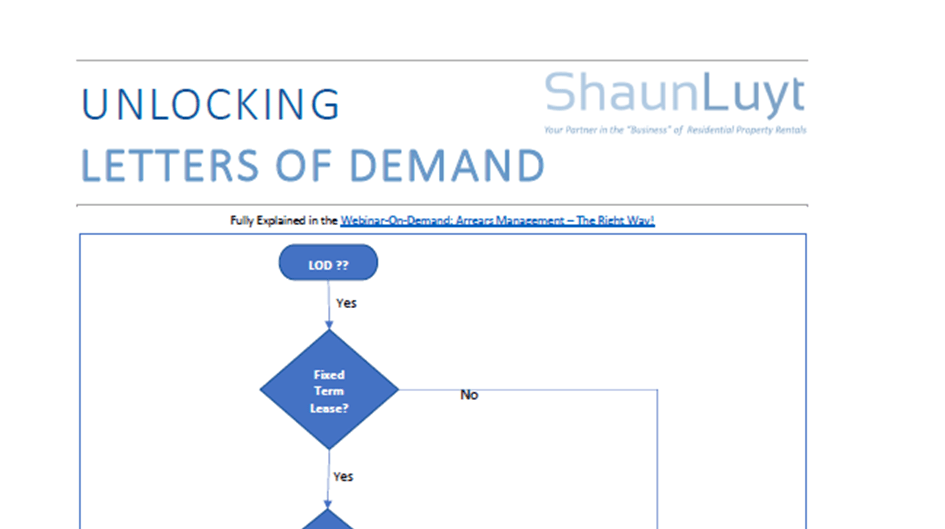Mould is a common yet potentially hazardous issue in rental properties, and understanding its causes, risks, and solutions is crucial for both rental agents and landlords. Recently, we hosted an insightful webinar on this very topic with Marisia Robus, the CEO of Gauteng Property Inspections and a seasoned expert in property inspection.
Marisia shared her expertise on tackling mould in rental properties, drawing on years of experience helping property owners save thousands in maintenance costs. Below are some of the key takeaways from this highly informative session.
Why Mould Forms Indoors
As Marisia explained, mould plays a beneficial role in nature, breaking down organic matter. However, in an indoor environment, mould can cause health risks and damage to property.

Mould thrives in damp, poorly ventilated spaces, with bathrooms being a particularly common spot. The combination of moisture from showers and limited airflow creates the perfect conditions for mould to grow on ceilings, walls, and even bathroom fixtures.
Poor ventilation can also cause mould in other areas like kitchens and bedrooms, especially if these rooms lack air bricks or if tenants habitually keep doors and windows shut.
Effective Cleaning and Maintenance Techniques
Cleaning mould is essential not only to keep spaces looking fresh but also to reduce health risks. Marisia recommended a simple yet effective cleaning method: using hot water mixed with a cup of bleach to wipe down affected areas. This solution kills the spores, preventing them from spreading through the air, where they can be especially harmful to people with respiratory conditions. While this cleaning process can help, it is essential to recognize that unless ventilation issues are resolved, the mould will likely return.
To prevent mould from reappearing, Marisia suggested repainting ceilings and walls with special bathroom paint, which is designed to resist mould growth. However, she emphasized that even this approach has limits if ventilation problems remain unaddressed. Installing an extractor fan or even simple air bricks can make a significant difference, allowing moisture to escape more efficiently.
Recognizing Mould-Related Structural Issues

One of the most valuable insights Marisia shared was the importance of distinguishing surface mould from mould caused by deeper, structural issues. For instance, persistent mould in areas other than bathrooms could indicate a leaking pipe, rising damp, or even an issue with the building’s foundational integrity. These issues require a professional inspection and often more extensive repairs to protect both the property’s value and the tenant’s health.
Tenant and Landlord Responsibilities
Rental properties require both tenant and landlord cooperation to keep mould at bay. While tenants should ventilate rooms after bathing or cooking, landlords have a responsibility to address structural issues and maintain the property in a habitable condition. A mandatory disclosure about mould presence at the start of a tenancy can help avoid disputes down the line, making responsibilities clearer.
Marisia stressed the importance of proactive maintenance for landlords, suggesting they invest in preventative inspections to catch issues early. She also highlighted that comprehensive documentation, including inspection reports, photos, and tenant instructions, can help both landlords and tenants understand their roles in preventing and managing mould growth.
Final Thoughts
Our webinar underscored the importance of knowledge and communication in addressing mould issues in rental properties. By understanding the causes of mould and implementing both preventive and remedial measures, rental agents and landlords can help ensure a safer, healthier environment for tenants. As a result, they can avoid costly repairs and protect the long-term value of their properties.
For those seeking further support, we offer extensive resources and expert-led sessions through our Rental Training Club, ensuring agents stay well-equipped to manage rental challenges professionally and effectively. Join us to stay informed, learn from industry leaders, and gain the insights needed to succeed in property management.
Would you like to contact Marisia? Here’s her contact details: m 082 884 2588 | e marisia@gautenginspect.co.za
Lastly, here’s the link for the Proud Homeowner’s Maintenance Course: https://www.proudhomeowner.co.za/the-proud-homeowner-maintenance-course/
Would you like to watch the recording of this episode of the Rental Training Club . . .



